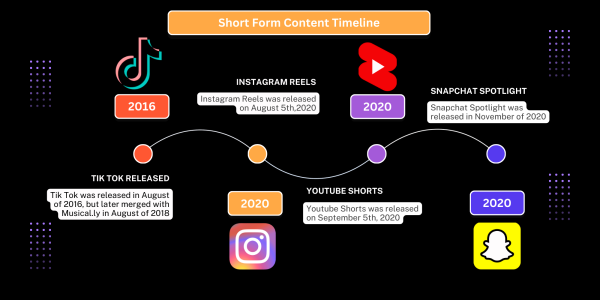2018 Midterm Election
Recap
The 2018 midterm elections caused some unexpected results, with some voting difficulties occurring along the way. The New York Times stated that this election had “the highest [percentage of voters] since at least the 1970s.” Although the projected “blue wave” of a Democratic majority in both houses of Congress did not occur, the Democrats, with 231 total seats, gained a majority in the U.S. House of Representative for the first time in over a decade. However, the Republicans still have the majority in the Senate, with 51 seats.
In Illinois, JB Pritzker, a Democrat, won the race for governor. Regarding education, Pritzker campaigned for further developing early education opportunities and helping to add breakfast programs into schools as well.
For the U.S. House Representatives of Illinois, 13 Democrats and five Republicans were elected. Each representative will be mentioned by the numerical order of their district they will represent: Bobby Rush (D), Robin Kelly (D), Dan Lipinski (D), Chuy Garcia (D), Mike Quigley (D), Sean Casten (D), Danny Davis (D), Raja Krishnamoorthi (D), Jan Schakowsky (D), Brad Schneider (D), Bill Foster (D), Lauren Underwood (D), Cheri Bustos (D), Mike Bost (R), Rodney Davis (R), John Shimkus (R), Adam Kinzinger (R) and Darin LaHood (R).
Schneider, who represents parts of Cook and Lake Counties, including Libertyville, told the Chicago Sun-Times that the district needs “to be working on smart electrical grids, stormwater management, updating our aging schools and much more.”
Nationally, this midterm election brought much more diverse representation into the House of Representatives. This includes the first Muslim women to be elected, Rashida Tlaib (D — Michigan) and Ilhan Omar (D — Minnesota); the youngest woman elected, at 29-years-old, Alexandria Ocasio-Cortez (D — New York); and the first African American woman elected into Congress from the state of Massachusetts, Ayanna Pressley (D).
Many counties across the U.S. saw a host of issues regarding their voters’ ballots. In Monmouth County, New Jersey, mail-in ballots were sent back to the voters, something that has happened before in this county. NJTV, a PBS television station, stated that “554,411 votes by mail were issued, and 52 percent [were] returned.”
Because of this, many people were worried that their vote wouldn’t be counted. However, New Jersey had a special “provisional paper ballot,” where, if someone was supposed to vote by mail but something prevented that from happening, voters could use this paper ballot to cast their vote.
New Jersey was not the only place to have mail-in ballots sent back to voters; Florida provides another example of this. Zina Rodriguez, a citizen of Riviera Beach, Florida, received a rejection notice in her mailbox the night before voting. Later she found out that her ballot was sent back because of a sloppily done signature on her driver’s license two years prior. She stated in the New York Times that she wanted to have a mail-in ballot so that she could have “time to research all of the questions.”
Florida not only found trouble for mail-in ballots, but they also found themselves with another problem: a seemingly equal divide among voters. The Senate race in Florida, between Gov. Rick Scott (R) and incumbent Sen. Bill Nelson (D), continued on for more than a week after election day due to the count being too close to call. Because of this, a recount was done; the final results, turned in two minutes late, were denied by the state and were left to be recounted again. Twelve days after the midterm election, following both recounts, Gov. Rick Scott was declared the victor of the Senate race.
In Georgia’s gubernatorial race, numerous allegations of voter suppression were filed against the newly elected governor, Brian Kemp (R). These allegations came about on account of over 50,000 voter registrations being put on hold, 70 percent of whom were reported by the Associated Press to be people of color. Many speculate that this was deliberately done in order to give Kemp an edge over his African American rival, Democratic candidate Stacey Abrams. Ironically, Kemp had accused Abrams’ supporters of voter fraud in the past although he is the one now receiving backlash. During a heated debate between the two candidates, Kemp responded to the claims of voter suppression, stating, “This farce about voter suppression and people being held up on the rolls…is absolutely not true.”
What to Expect
Although the election took place more than a month ago, not much has happened yet. This is because Congress is in a “lame duck” period, which is the time between the midterm election and when the new Congress takes office. However, there is much to be expected when the newly elected members of Congress are sworn in and assume their roles in January.
When the new Congress assumes office, oversight upon the executive branch is likely to occur. With the Democratic majority within the House, the Trump administration will likely be monitored to some extent. Democratic Representative of California’s 28th District and House Intelligence Committee Chairman Adam Schiff has been vocal about the proposed 85 oversight topics the Democrats seek to divide between committees and then investigate in the next two years. In an interview with Axios, a news website, Schiff mentioned the topics include the firing of former FBI director James Comey, the travel ban enforced upon Middle Eastern countries and White House security clearances, among others. Countering the GOP’s goals and regaining some of the power that has belonged to the GOP will be a major priority on the agenda for the Democrats.
In addition to oversight, it is possible that the Democrats will use their newfound subpoena power to challenge the GOP and the executive branch. A subpoena is a written request that legally requires the recipient to appear in court. According to Bloomberg, the Republicans have ignored over 100 subpoena requests since Trump was inaugurated. But still, in the coming months, expect to see hearings over the president’s policies conducted by standing committees in the House. Subpoenas issued by the Republicans can also be expected. On Nov. 22, the House Republicans subpoenaed former FBI director James Comey over the issue of Russian interference in the election.
On the subject of legislation, there may not be much to anticipate. With the government divided, it is uncertain as to what legislation could be enacted. Nonetheless, in an interview with CNN, the current House Minority Leader, Representative Nancy Pelosi from California, promised that enacting gun control laws will be a “priority” for the new Congress. The Democrats are also expected to reintroduce their “Better Deal” plan. According to the Senate Democrats’ website, the plan will work to lower costs of prescription drugs.
Additionally, during a recent rally, President Trump hinted at another tax cut for the middle class. But in this partisan era, it is inevitable that both sides will spend most of their time countering the other party’s motives. In a study done by the American Journal of Political Science, it was found that, statistically, more legislation fails to pass under divided government. Because of this, it’s plausible that the next two years will see a constant cycle of legislation drawn up by the House and shut down by the Senate, and vice versa.
Another topic that has been widely discussed is the case of impeaching President Trump. But again, since Congress is divided, the possibility of President Trump’s removal via impeachment is unlikely. Although the House could impeach the president, as the Democrats have the majority, the Republican majority within the Senate must still hold a trial. Afterwards, under the Constitution, two thirds of the Senate is needed to convict. And as partisanship is consistently everything in politics, there is very little chance of Trump’s dismissal from office. According to a study by Newsweek, as the Republicans retain control of the Senate, there is only a 7 percent chance of the president’s removal from office.
Voters at LHS
Because some seniors at LHS were 18 at the time of the midterms and had already registered to vote, some students were able to participate in their first election. Among those were seniors Grace Boileau and Brandon Brown.
“When you vote, your voice is heard by the government, so it just shows how every voice in this country matters. I don’t see any regret to voting at all,” Brown said. Voting lets “ you tell the government what you want to see.”
Boileau said that before she went to vote, she wanted “[a public servant] who was going to stand up for [her] beliefs on that side [of women’s rights].”
According to Boileau, knowing what each candidate’s policies are in regards to the subjects that are the most important to individuals can help voters make important decisions.
As Carolyn Dewitt, a writer for Cosmopolitan stated, voters should “look up [their] sample ballot and do some research.” She then went on to explain how beneficial looking up the candidates can be, as it helps you make a more informed decision.
Uneducated voters are a huge concern, stated Boileau. She mentioned that she “wasn’t a very educated voter on some of the bills that they were trying to pass regarding taxes, and [she] misread a lot of them.” She wished she would have looked more into political issues before she went to vote.
Ms. Amy Holtsford, a government teacher, stated that she “strongly [encourages] all of [her] students to vote.” She also believes that “good governance depends upon an informed electorate and democratic participation, which, of course, includes voting.”
Prior to the election, she helped her students by telling them about a website called vote411, which is “a non-partisan website that connects people to nearly any race or candidate across the country.” This website is, as Ms. Holtsford said, a great place to get information on different candidates to figure out the best person to vote for.
Ms. Holtsford also expressed how lucky we are to live in Lake County. She said that “we rely on the result, knowing it’s based on truth, fairness and integrity. There are other places across the country that have struggled with those basics and have made it more difficult for eligible voters to cast ballots.” Ms. Holtsford also said that the amount of voters at this election was “encouraging.”






